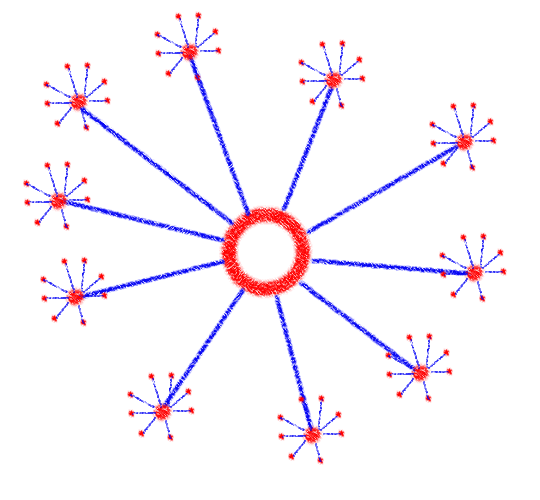 The other day I read a good post in AdAge (written by Michael Scissons) on some really important insights that he and his firm found after digging deep into Facebook data. One of those insights in particular struck me: Local pages drive 36% better results.
The other day I read a good post in AdAge (written by Michael Scissons) on some really important insights that he and his firm found after digging deep into Facebook data. One of those insights in particular struck me: Local pages drive 36% better results.
“…the data shows that local Facebook pages perform 36% better than global ones. Success is driven by great organizational empowerment at the local level, relevant local content, local media support and presentation in a tone of voice relevant to the targeted local market.”
[Note: moving forward, I'll continue to use Facebook pages as the example based on the original article, however this can really be applied to all outposts and overall social media structure.... with a solid strategy of course!]
What this loosely translates to in my brain is that the traditional centralized approach, with minimal and controlled outposts, and strategy driven from the top is changing. Generally speaking, most of the reasons that local pages perform better than regional or global is probably based on relevance - the information is more applicable and pertinent.
Combining the concepts of relevance and centralization (or decentralization), whether you’re talking about location, target marketing or demographics, by strategically dividing out your Facebook pages so information can more easily be paired to the relevant audience, you can begin to see the benefits of considering a less centralized page structure.
It’s been more common that a large organization with multiple departments, locations, or oftentimes goals has still found themselves limiting the number of Facebook pages representing their brand, usually for reasons having to do with brand consistency, maintenance, control and overall organization. A lot of pages means more risk of losing control of one or more pages/teams, which leads to more pages to keep track of, organize and maintain and more risk of having inconsistencies of messaging and brand image.
The hesitation and fear are understandable, but I argue that a more decentralized approach may be better.
Decentralized Federations
This terminology isn’t new and made me think of a business case we did at b-school (which I ran around for last night for about 45 minutes, luckily I finally found it - “Organizing for Worldwide Effectiveness: The Transnational Solution,” from California Management Review, Fall 1988), it comes from the business world (well, ok ok it comes from way before that):
“The management style of decentralized federation reinforces companies’ willingness to delegate more operating independence and strategic freedom to their subsidiaries.”
(Oddly, I was chatting with Kevin Morrow earlier today about our collective thoughts on Syracuse University’s Facebook Structure, and used the term “federation” as well… consider it official!). By dividing your Facebook pages to be more targetted, while still allowing for one overarching account, you’re able to get more relevant information to the constituents who want/need it.
Ok, still sounds scary, but I notice (because I underlined it in my incredibly geeky blue Papermate Flair pen, which I’m addicted to, in all colors) the introduction of that case study contains the following:
“Companies that are unable to gain firm strategic control of their worldwide operations and manage them in a globally coordinated manner will not succeed in the emerging international economy.” (gratuitous italicizing on my part)
However, it’s completely doable. For SU, this means taking a combination of our most important constituents (current students, alums, prospectives, etc), our most important geographical locations (whether it be a center, or an area with a particularly large number of constituents) and most important goals (Admissions, Fundraising, Alumni Relations, etc), plus a few more (like sports!), and creating a structure that supports each of these as separate but coordinated and collaborative entities.
Two of the biggest things that will keep the decentralized federation structure apart (and, when lacking, makes for a really messy structure) is MANAGEMENT and COMMUNICATION. By setting up an effective management structure and an open channel of two-way communication, this process becomes much easier to implement.
I’ll write more on this later…



